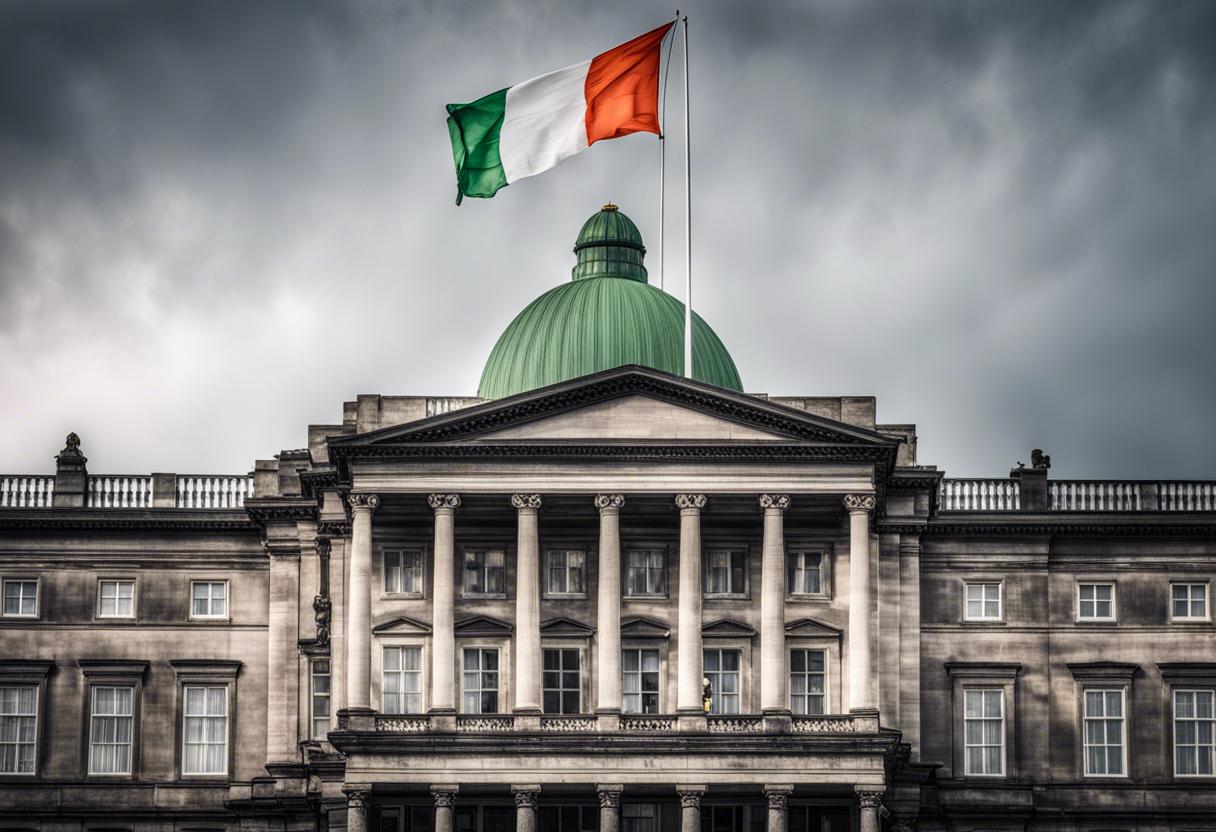Independent Member of Parliament Catherine Connolly has vehemently chastised the State along with its institutions, encompassing the judiciary, for their role in propagating a narrative that dishonoured the families affected by the Stardust fire.
In a damning critique, the MP for West Galway tore apart succeeding legal reports that were published after the notorious fire in 1981, pointing out inconsistencies and firmly asserting that these events were not coincidental.
Connolly underscored the monumental importance of delivering justice for the ‘unlawful deaths’ as dictated by the result of the recently concluded inquests, stating emphatically that it calls for stringent accountability in acknowledging who’s to blame for such deaths.
Additionally, she sent a stark warning of the urgent need for the Government to acknowledge a repetitive narrative of self-preservation that she noticed in every report studied during her tenure in the Irish parliament, also known as the Dáil.
The Stardust families’ ordeal was compared to the Kerry babies tribunal by Connolly, indicating a common narrative. She clarified that the tribunal was initially meant to scrutinise the Irish police but ended up painting a picture about Joanna Hayes and her family.
Although an apology was offered to the Hayes family and the Stardust survivors, she held that the establishment remains unenlightened. To Connolly, it was more a game of power where the mightier shielded each other, a clear indication of an absolute class distinction. She warned the government that until they address these issues and start to learn from them, they wouldn’t move forward.
In reference to Prime Minister Simon Harris’s speech offering an apology, she criticised him for merely stating that the state institutions had failed the people. She argued that a lot more had happened and it was a deliberate act of stopping truth from surfacing that took place.
Connolly reiterated her stance, telling the parliament and the Stardust families that a distinct class distinction played out where those with power shielded each other. Unless the government starts to learn from this, she warned, no progress can be made.
During her concluding remarks about the tragic incident that took 48 lives, Connolly mentioned the discomfort endured by the families, asserting that the situation should make us feel more uneasy as the apologies seemed to be forced out of the government rather than freely given. She implicated it’s a result of a gross misuse of power which led to anguish, death and sorrow, as well as addictions and suicides.
The original text reports on remarks initially made by a woman regarding the extensively severe verdict from Mr Justice Ronan Keane’s Keane report. The woman criticised this report for being unfavorably harsh towards the owners and certain organisations, including the local government. She, however, questioned the final conclusion which significantly differed from the earlier observations he had made.
She expressed concerns over the assertion that the incident was likely induced by arson. She fervently questioned how anyone could arrive at such a conclusion based on the presented evidence. According to her, it was the job of the Taoiseach and TDs to scrutinise this paradoxical judgment.
The woman further pointed out that Mr Justice Keane chastised the nightclub’s top management and their safety protocols. Keane laid the blame for the dangerous habit of locking emergency exits with chains and padlocks on Eamon Butterly, the club’s manager, a practice which put the lives of over a thousand attendees at risk.
Despite strong initial judgments, the report inexplicably proposes the likelihood of an arson attack. She referred to consequent faulty postmortem inquiries that only disclosed the medical reasons for death.
Four years post the fire, Butterly and his kin received a compensatory amount exceeding half a million pounds. Mr Justice Sean O’Hanrahan backed the story, asserting the Stardust fire was intentionally ignited.
The compensation tribunal held in 1985 was another act of disdain, headed by the highly esteemed Mr Justice Donal Barrington. The tribunal declared that distress could not be compensated for, a verdict she found inconceivable.
A victim’s father, John Keegan, took this decision to the Supreme Court, only to have it upheld. Keegan passed away on the exact day the Supreme Court dismissed his plea. She stressed these repetitive occurrences were not coincidental.
The woman mentioned Christy Moore, a singer held in contempt by Mr Justice Frank Murphy. Murphy deemed Moore’s song – They Never Came Home, carried lyrics that could jeopardize a fair trial.
She elaborated, “Remarks by the authorities, asserting that certain individuals were spreading falsehoods, supposedly, didn’t exhibit any bias or disdain. The powerful were merely safeguarding their own kind.” This was in response to a 2006 Prime Time documentary advocating for a fresh public examination, which did not materialise, as noted by Ms Connolly.
She continues with the mention of the Coffey report, which needed amendments. “It’s important to recall that this report originated only after a non-official investigation was initiated by the then government. John Gallagher SC had to step down due to a conflict of interest as he previously represented An Garda Síochána.” The Coffey report presented a choice for the leaders.
He suggested there ought to be a thorough public investigation unless the phrase ‘probable arson’ was omitted. Instead of acknowledging a severe issue requiring public scrutiny, “it only removed the contentious words and preserved the remainder.”
At last, the public report was rectified and the hinted arson cause was deleted. Nonetheless, the 2017 McCartan report reviewing a file containing new grounds for an inquiry “compounds the affront”. The dossier was criticised by ex-judge Pat McCartan as “confusing, disorderly, confrontational and occasionally unclear,” making the new evidence “difficult to comprehend.”
In 2019, lawyers from Phoenix Law examined the European Convention on Human Rights and the then attorney general Séamus Woulfe insisted on a fresh inquest. However, it took another five years to finally reach the verdicts of “unlawful death”, she confirmed.

